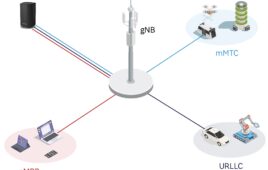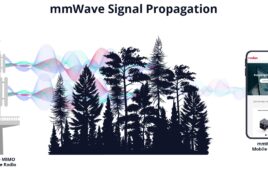Looks like AT&T is ramping up its 5G game.
Thought the carrier already confirmed it plans to conduct 5G field trials in Austin, Texas, later this year, it seems AT&T also has some East Coast tests up its sleeve.
Earlier this month, AT&T filed an application with the FCC to test prototype and experimental 5G radio systems in the 28 GHz and 39 GHz bands at its laboratory office in Middletown, New Jersey.
According to AT&T, the radio systems will be constructed from “various commercially available millimeter wave components and/or modified existing millimeter radios.” Each radio unit will include a transmitter, a received and a directional antenna, with a maximum transmitter power of 23 dBm, AT&T said. The radios deployed will experiment with frequency hopping in wide band channels as well as digital QAM modulation in narrower band channels, AT&T said.
The carrier said the units will be deployed a various outdoor locations within one kilometer of the lab facility and fixed to poles. AT&T said the experiments will examine the use of different antenna and propagation path configurations.
The carrier said the tests will help it evaluate different channel characteristic – including loss, dispersion, MIMO channel rank and interference – in a real world setting over time and in various weather conditions. As part of its assessment, AT&T said it will review a number of performance characteristics, such as “data throughput, latency, error rates, availability and susceptibility to and generation of self and external interference.”
The move comes as the carrier prepares to conduct fixed and mobile 5G tests in Austin in a number of different bands.
At the Brooklyn 5G Summit this week, AT&T senior vice president of wireless network architecture and design Tom Keathley said the Austin tests will initially be conducted in the 15 GHz band. Tests on the 28 GHz band will follow, Keathley said, and the experiments will mostly focus on fixed wireless.
Keathley’s comments on fixed wireless echo a similar statement made yesterday by Verizon CFO Fran Shammo, who said Verizon’s own 5G testing is “really not about mobile, it’s really around fixed wireless.”
Like AT&T, Verizon and T-Mobile have both applied to conduct 5G tests in the 28 GHz range. T-Mobile is also hoping to conduct tests at 38 GHz and 39 GHz.
Verizon’s focus on 28 GHz follows the carrier’s recent acquisition of XO Communications’ fiber assets. The deal brought Verizon the option to purchase the entity that holds XO’s 28 GHz spectrum by the end of 2018.
AT&T’s radios won’t be the first 5G technology to test its legs in New Jersey. Working with Samsung, Verizon has also conducted 5G trials at its headquarters in Basking Ridge.




